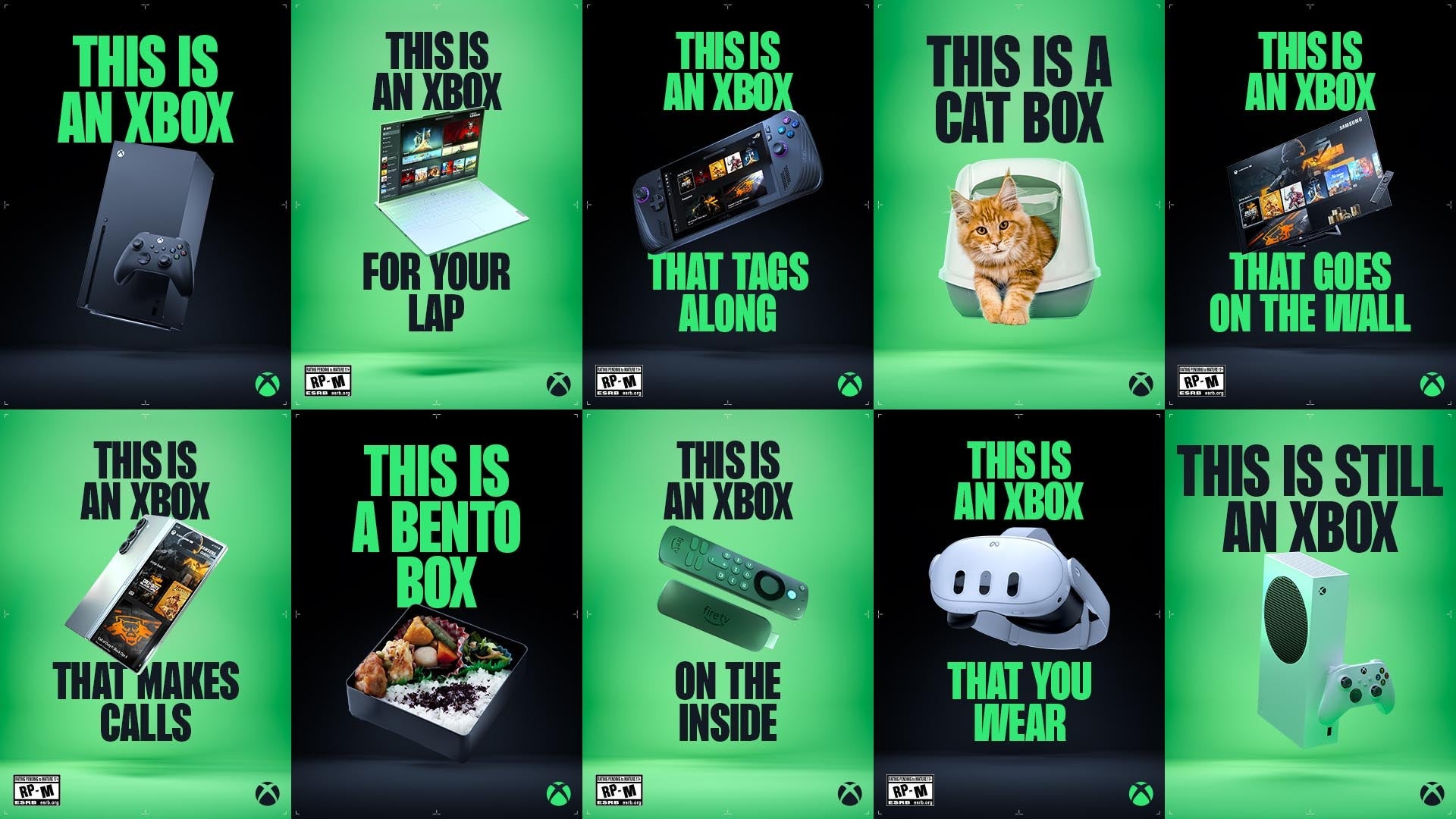What is an Xbox? It’s a pretty straightforward question, right? I’d define it as a custom piece of gaming technology, generally box-shaped, that typically sits in the lounge or bedroom. Competitively priced, it’s a mainstream-orientated product that offers a great balance between price and performance and is as close to plug and play gaming as you’re going to get. It is a console, or is it? Microsoft begs to differ with its latest, remarkable messaging. A cloud client running on a smart TV, Amazon Fire Stick or Meta Quest VR headset is now an Xbox. A desktop PC is an Xbox. A laptop or PC handheld is also an Xbox. It’s all part of Microsoft’s transition plan to evolve Xbox from a console/PC ecosystem into an ‘Everywhere’ platform that’s as device-agnostic as it’s possible to be – but is it going to work?
Looking at the market from a meta perspective, it’s to work. Xbox needs to reach out beyond the existing pool of console gamers. The basic economics are simple. Market data suggests that the amount of console users in total is not shifting from one generation to the next. Not only that, some data is suggesting that it is the buying those consoles from one generation to the next. In the meantime, the cost of making games is getting ever more expensive. The only sustainable route forward is to reach beyond circa 200m to 250m console gamers and find a larger audience. Microsoft began that work years ago in ending game exclusivity by releasing key titles day and date on PC – but the strategy now looks to be a case of releasing those games on any piece of hardware capable of running them.
By virtue of its various acquisitions, Microsoft/Xbox has effectively become a multi-platform publisher that cannot and should not ignore rival console systems like Nintendo Switch, the Switch successor and PlayStation 5. When the Activision Blizzard King acquisition was announced so long ago, we were still in the midst of console wars and the expectation may have been that Call of Duty would go Xbox exclusive – but the finances would not have worked, the regulatory pressure on the acquisition was too over-bearing and ultimately, Microsoft would likely have lost money by freezing out the PlayStation audience. I can only assume that the calculation was made that PlayStation users would not leave their libraries behind and ‘defect’ to Xbox – and why should they?
0:00:39 Introduction0:02:56 News 1: Phil Spencer: no “red lines” on Xbox ports0:27:21 News 2: Lego Horizon Adventures impresses on consoles0:36:40 News 3: Halo 2 E3 demo resurfaces in Master Chief Collection0:51:30 News 4: PS5 Pro sales reportedly not impacted by price1:01:35 News 5: Stellar Blade developer considering PC release1:08:35 News 6: Intel plans Arrow Lake performance fix1:17:47 News 7: ModRetro Chromatic impresses1:28:37 Supporter Q1: How will the next Xbox achieve the “largest technical leap” in a console generation?1:35:46 Supporter Q2: If the next Xbox doesn’t have a disc drive, how will disc backwards compatibility function?1:42:15 Supporter Q3: Are you excited to see the rumoured Nvidia ARM-based laptop chip?1:48:22 Supporter Q4: Will we see support for ultrawide aspect ratios on consoles?1:56:56 Supporter Q5: Can we give Epic credit for allowing Internet Archive to host older Unreal games?
Meanwhile, for various reasons, Xbox hardware sales have slowed down significantly – a combination of old Xbox One users on ‘forever games’ finding no reason to upgrade, along with a consistent lack of delivery of top-tier titles that may make users jump over to the Xbox brand. In acquiring a greater split of the existing, static market, it has failed. Therefore, a new strategy was required.
